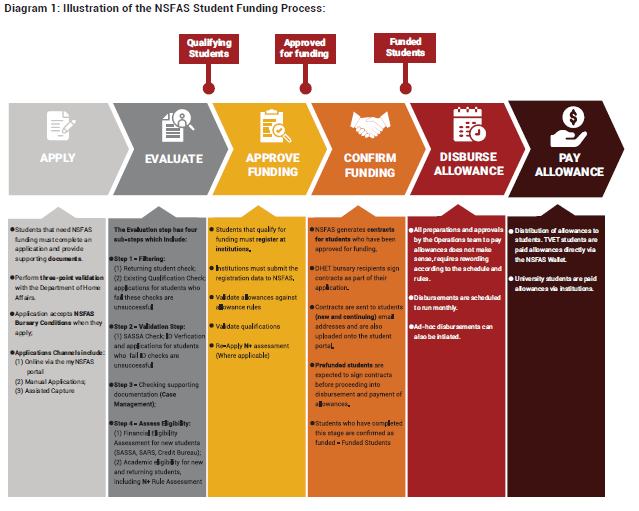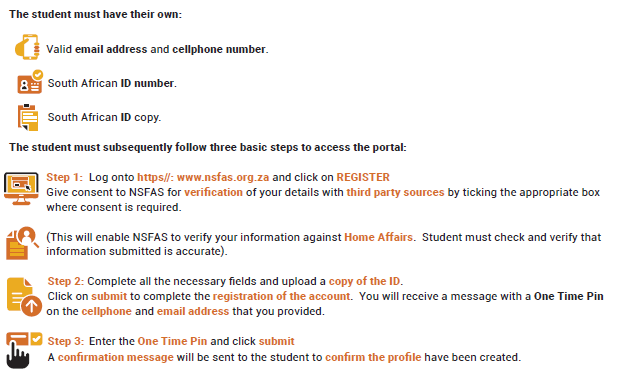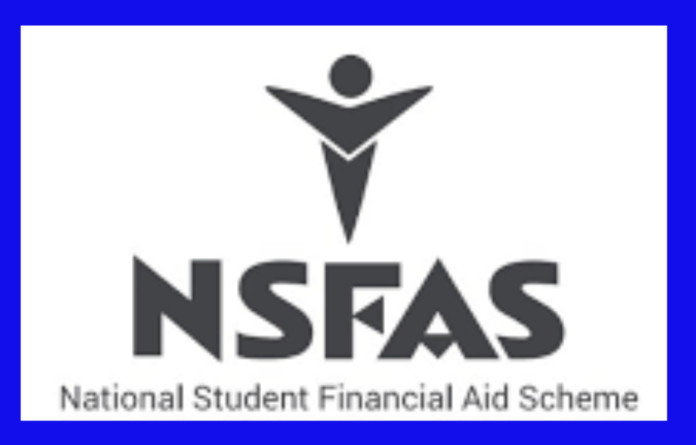The cycle for the 2022 National Student Financial Aid Scheme (NSFAS) applications are due to open in the next month or so. NSFAS has also released their 2021 state of funding report. Here’s what you need to know.
UPDATE:
Minister Blade Nzimande said the NSFAS board will be granting registered and eligible students who were unable to submit their funding applications in the previous application window – the opportunity to do so from August 18 till September 3 2021.
RELATED
Here’s What You Need To Know About NSFAS 2021
Fees Must Fall 2021: here are 10 key questions
Functioning of NSFAS:
NSFAS remains fully functional under COVID-19 lockdown and can be accessed via the following details:
Tel: 08000 067 327
Email: info@nsfas.org.za
Facebook: National Student Financial Aid Scheme
Twitter: myNSFAS
Instagram: myNSFAS
NSFAS Contact Centre operational hours are Monday to Friday, between 08h30-17h00
How has the COVID-19 pandemic changed the system?
With the COVID-19 pandemic, applicants will need to accept the electronic consent form, along with the terms and conditions for funding. The application system will require students to submit their supporting documents, which comprise their own ID copy; parent/guardian proof of income; parent/guardian ID copies; and/or annexure A for applicants with disability.
Eligibility for funding
The eligibility criteria for students is developed by NSFAS and approved by the minister. The approved funding criteria has two elements: income eligibility and academic eligibility. Students may receive NSFAS funding if the household income is less than R122 000 (before 2018). From 2018 onwards students qualify for NSFAS if the household income is up to R350 000 per annum. Disabled students qualify if the household income is up to R600,000 per annum.
Students must also satisfy the academic eligibility criteria. Potential NSFAS students must succeed in their academic studies and still be within their applicable N+ rule to continue receiving NSFAS bursaries. NSFAS provides bursaries to eligible students who wish to study at any of the 26 public universities and 50 technical and vocational education and training (TVETs) colleges.

RELATED:
TVET colleges: here’s what you need to know
N+2 rule funding
The N+2 rule states that over and above the minimum period of study for a particular qualification, a student has an additional two years to complete their degree. In other words, NSFAS will cease to provide funding after this (plus two years) period. In 2021, there were many issues with this rule. There are several students who are preparing to take NSFAS to court over this rule. The students have said the rule is being improperly applied.
RELATED:
NSFAS says the N+2 rule is meant to speed students through the system
In their own words: NSFAS N+2 students speak out
Postgraduate funding
NSFAS funding currently applies for only one undergraduate degree. No postgraduate funding is being provided under the current 2021 higher education department rules and guidelines. This caused a lot of confusion around the funding of the postgraduate certificate in education (PGCE) students. Students who applied for this in 2020 were told in 2021 they would not be funded.
RELATED:
Confusion continues around NSFAS funding for PGCE students
Funding for students for 2021
According to NSFAS, they can confirm that they have so far disbursed allowances to a total of 623 386 students as per the data submitted by institutions. This number represents at least 48.5% of the total number of overall eligible students. This number is likely to increase as a result of the TVETs T2 intake, semester 2 (TVETs and universities ) as well as the T3. NSFAS made its first payment on April 9 to cover March and April. A second payment was made on June 10. At TVET colleges, upfront payments were made from NSFAS in February.

Challenge facing NSFAS funding
NSFAS said one of the biggest challenges facing that is that there are thousands of students who have not created user profiles on the myNSFAS student portal. This contributes largely to the NSFAS wallet payment failures. Students who have not created myNSFAS portal are urged to do so to receive their allowances. NSFAS cannot pay students if their “wallets” are locked or blocked. Fraudulent activities have been noted and NSFAS continues to make students aware of the importance of profile management to manage this risk and report any abnormal activities on the accounts.
RELATED:
FMF 2021: Historic debt, the missing middle and free education explained
This piece will be updated when the latest information about 2022 applications become available.









